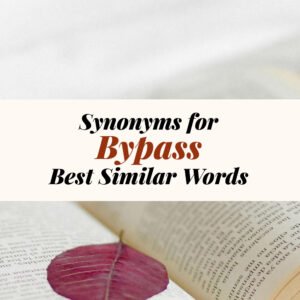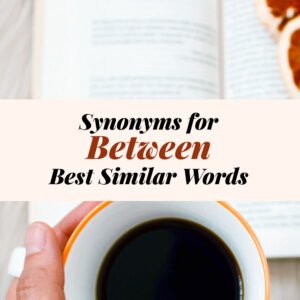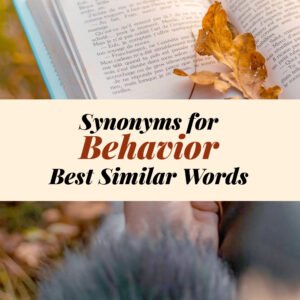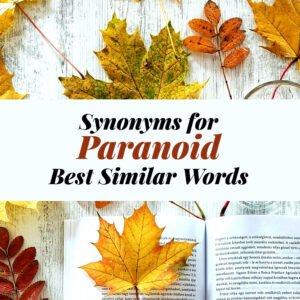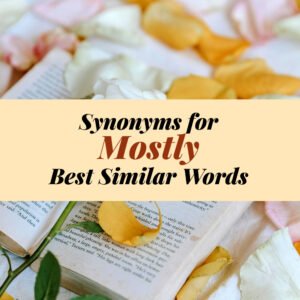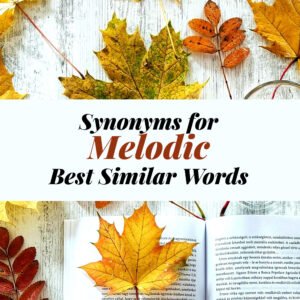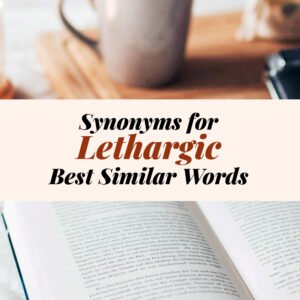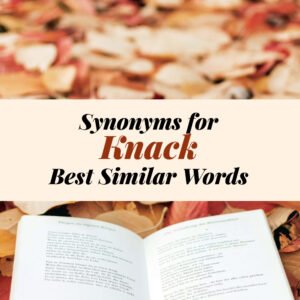Sometimes, we want to connect two sentences or ideas in a way that shows contrast. One common word we use is however. There are many other words we can use instead, such as but, yet, and nevertheless. In this article, we will explore 15 different words like however and show examples to help you understand them better.
| Synonyms | Example |
|---|---|
| But | I wanted to go to the park, but it started raining. |
| Yet | She is tired, yet she continues to work. |
| Nevertheless | The exam was hard; nevertheless, he passed. |
| Nonetheless | The team was small; nonetheless, they won the match. |
| Still | He was sick, still he finished his work. |
| On the other hand | I like coffee; on the other hand, my friend prefers tea. |
| Although | Although it was cold, we went outside. |
| Even so | The road was blocked; even so, we tried to pass. |
| Though | Though he was late, he joined the meeting. |
| Conversely | She likes quiet places; conversely, he loves loud parties. |
| Regardless | I was tired, but I went out regardless. |
| Notwithstanding | Notwithstanding the weather, we had fun. |
| In contrast | In contrast to last year, this year is warmer. |
| Whereas | I like summer, whereas my brother prefers winter. |
| Alternatively | We can walk; alternatively, we can take a bus. |
15 Different Ways to Say HOWEVER: Another Word for HOWEVER
But
The word but is one of the most common alternatives to however. We use it to show a contrast between two ideas. It is short and very flexible. You can place it in the middle or start of a sentence. Using but makes your sentence easy to understand because it clearly shows a difference or opposite idea. It works well in both spoken and written situations. By using but, your communication can feel natural and smooth, and it avoids repetition of the word however when writing many sentences in a paragraph.
- I wanted to sleep, but my friend called me.
- She likes sweets, but she avoids chocolate.
- We planned a picnic, but it rained all day.
- He tried hard, but he could not win.
- I wanted to join, but I was too late.
- They bought the car, but it was expensive.
Yet
Yet works like but, and it shows contrast between two ideas. It is often used when something is surprising or unexpected. When we use yet, it can make the sentence feel stronger. It is short and clear, and it is useful when comparing two events or actions. It also gives a sense of continuation, meaning that even with a problem or situation, something else happens. Using yet helps to make your writing more varied, avoiding overusing however in your sentences.
- He is young, yet very wise.
- I studied hard, yet I failed the test.
- The sun is bright, yet it feels cold.
- She is tired, yet she keeps working.
- The movie is long, yet interesting.
- He is new here, yet he knows many people.
Nevertheless
Nevertheless is a formal word to show contrast. It is stronger than but and is often used in writing. It connects two sentences or ideas, showing that the second idea happens even though the first one could stop it. Using nevertheless makes your sentence sound polite and professional. It works very well in essays, reports, or letters. It also adds variety to your text so you do not repeat however too much.
- It was raining; nevertheless, we went outside.
- The task is difficult; nevertheless, she completed it.
- He was tired; nevertheless, he kept running.
- The food was expensive; nevertheless, it was delicious.
- The journey was long; nevertheless, they enjoyed it.
- The exam was hard; nevertheless, he scored well.
Nonetheless
Nonetheless has almost the same meaning as nevertheless. It shows that something happens even if there is a problem or difficulty. It is slightly formal and is often used in writing. Using nonetheless makes sentences more interesting and avoids repeating however. It is great for connecting ideas in paragraphs, especially when showing contrast or unexpected results. It makes your writing feel smooth and professional while keeping the meaning clear for the reader.
- He was injured; nonetheless, he finished the race.
- The plan was risky; nonetheless, they tried it.
- She had little time; nonetheless, she cooked dinner.
- The idea seems strange; nonetheless, it works well.
- The house was small; nonetheless, it was comfortable.
- He did not study much; nonetheless, he passed the exam.
Still
Still shows contrast or something unexpected. It is simple and short, and it can often replace however in a sentence. Still is useful when you want to emphasize that something happens even if it seems unlikely. It is good in conversations and writing. Using still helps to make sentences lively and easy to understand. It often comes after the subject or the verb, giving a smooth flow to the sentence.
- She is tired, still she works hard.
- It is cold, still I enjoy walking outside.
- He failed before, still he tried again.
- The car is old, still it runs well.
- I was scared, still I went in.
- They are poor, still they are happy.
On the other hand
On the other hand is a phrase that shows contrast. It is often used to compare two ideas. It makes your sentences longer but more descriptive. Using it helps to explain the opposite side or an alternative opinion. It is very useful in writing essays, opinions, or explanations. It also makes the text feel complete because it connects two ideas clearly and politely, giving the reader a better understanding of the situation.
- I like summer; on the other hand, my friend prefers winter.
- He is strong; on the other hand, he is very kind.
- We could go by car; on the other hand, walking is better.
- She loves reading; on the other hand, he hates books.
- The house is big; on the other hand, it is old.
- The task is easy; on the other hand, it is boring.
Although
Although is used to introduce a contrast. It comes at the beginning or middle of a sentence. It helps connect two ideas and shows that the second idea happens despite the first one. Using although makes sentences more varied and avoids overusing however. It is very common in speaking and writing. It is also flexible and can be used in formal or casual situations. It is perfect for showing contradictions in a natural way.
- Although it is late, I will finish my work.
- Although it rains, they play outside.
- Although he is poor, he is generous.
- Although the road is long, we keep walking.
- Although she is tired, she cooks dinner.
- Although the test is hard, I will try.
Even so
Even so shows that something happens despite a problem or difficulty. It is very similar to nevertheless. It gives a smooth way to continue sentences and express contrast. Using even so adds variety to your writing and speaking. It is short but effective. It often emphasizes the second idea after showing a negative or unexpected situation. This makes your communication stronger and more expressive.
- The weather is bad; even so, we will travel.
- He was tired; even so, he attended the meeting.
- The road is dangerous; even so, they drove fast.
- She was nervous; even so, she spoke confidently.
- The project is hard; even so, we will complete it.
- I was late; even so, I joined the class.
Though
Though is similar to although and shows contrast. It is shorter and often used in casual conversation. Though makes sentences feel friendly and less formal. It can be placed at the beginning or end of a sentence. It is very flexible and works well when expressing something surprising, unexpected, or opposite to another idea. Using though helps avoid repeating however and keeps the sentences lively and natural.
- Though he is young, he is wise.
- I tried hard, though I failed.
- She is kind, though strict sometimes.
- The house is small, though cozy.
- He is slow, though careful.
- Though it is expensive, I bought it.
Conversely
Conversely is used to show the opposite idea. It is often formal and used in writing. It is helpful when comparing two things or explaining a difference. Using conversely makes writing interesting and avoids using however repeatedly. It gives a clear connection between two contrasting ideas, which is perfect for essays, reports, or discussions. It shows the other side of an argument politely and strongly.
- He loves music; conversely, she prefers silence.
- The city is busy; conversely, the village is quiet.
- She is rich; conversely, her brother is poor.
- The weather is hot; conversely, the night is cool.
- He likes sports; conversely, I enjoy reading.
- The movie is sad; conversely, the book is funny.
Regardless
Regardless shows that something happens no matter what the situation is. It is useful when showing determination or persistence. Using regardless makes sentences strong and clear. It often replaces however when emphasizing that something happens despite problems. It is suitable for formal and casual writing. Regardless is great to show action or decision that continues even with obstacles.
- I will go regardless of the rain.
- He continued working regardless of being tired.
- She spoke up regardless of criticism.
- They finished the project regardless of difficulties.
- I accepted the job regardless of the distance.
- We enjoyed the trip regardless of problems.
Notwithstanding
Notwithstanding is a formal word that shows contrast. It works like nevertheless or even so. Using notwithstanding makes sentences polite and professional. It is often used in official writing, letters, or reports. It emphasizes that something happens despite difficulties or obstacles. Notwithstanding gives a strong effect and adds variety to sentences instead of repeating however. It shows the opposite idea clearly and politely.
- Notwithstanding the rain, we played outside.
- The team won notwithstanding many challenges.
- He passed the exam notwithstanding little preparation.
- She succeeded notwithstanding the problems.
- The house is beautiful notwithstanding the small size.
- The plan worked notwithstanding the risks.
In contrast
In contrast is used to show differences between two ideas. It is often formal and helps explain opposing ideas clearly. Using in contrast makes sentences descriptive and organized. It is helpful when comparing two things or showing the opposite side. It avoids repeating however and makes writing more professional. In contrast can also highlight differences in opinions, results, or situations effectively.
- In contrast to last year, this year is warmer.
- The city is noisy; in contrast, the village is calm.
- He is tall; in contrast, his brother is short.
- The summer is hot; in contrast, the winter is cold.
- The book is long; in contrast, the movie is short.
- She is outgoing; in contrast, he is shy.
Whereas
Whereas shows a contrast between two ideas. It is often used in formal writing but can also be used in conversation. Whereas helps to connect two opposite or different facts in one sentence. It is very useful when comparing two subjects or actions. Using whereas makes sentences longer but clear and professional. It shows the difference between ideas politely and effectively.
- I like summer, whereas my brother prefers winter.
- She is cheerful, whereas he is quiet.
- The city is big, whereas the village is small.
- He is rich, whereas I am poor.
- The movie is fun, whereas the book is serious.
- The food is spicy, whereas the drink is sweet.
Alternatively
Alternatively shows another option or choice. It is useful when giving a second idea or possibility. Using alternatively makes sentences descriptive and interesting. It can replace however when showing a different way or solution. Alternatively works well in writing and speaking when giving advice, options, or suggestions. It helps the reader or listener understand that there is more than one possibility.
- We can walk; alternatively, we can take a bus.
- You can stay here; alternatively, go with us.
- She can study art; alternatively, she may study science.
- He can cook; alternatively, he can order food.
- They can play outside; alternatively, they can watch TV.
- We can start now; alternatively, wait for later.
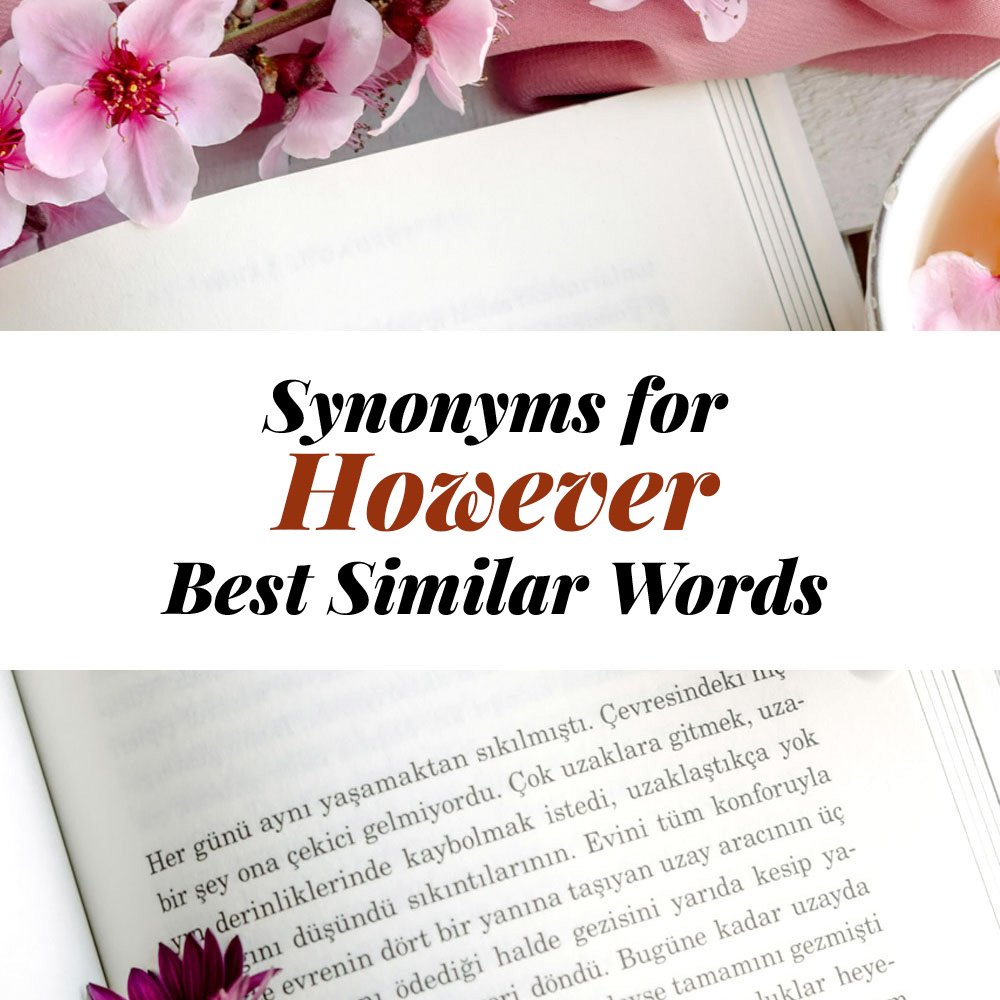
Final Thoughts
Using different words instead of however makes your writing or speaking more interesting and expressive. Each synonym helps to show contrast, surprise, or alternative ideas naturally and effectively. By practicing these words, you can connect sentences smoothly and improve communication in all situations.

